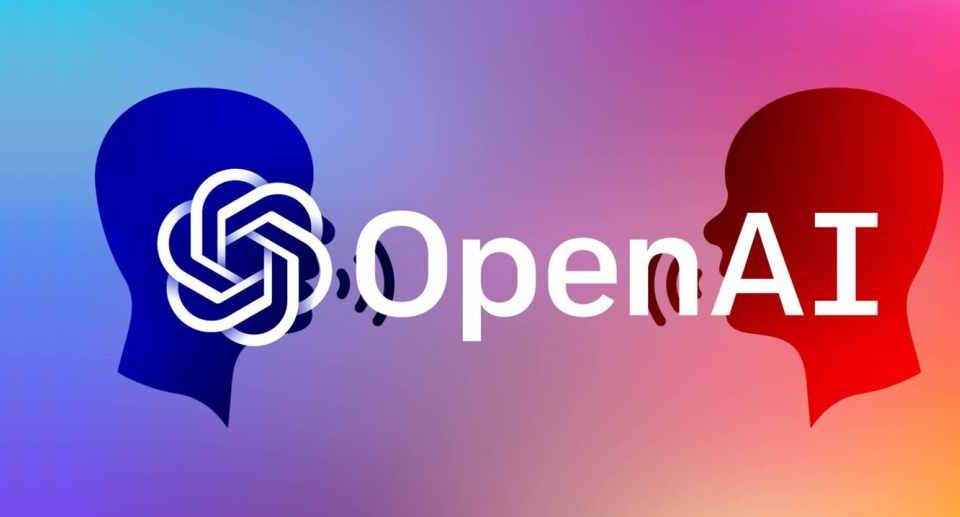OpenAI Unveils New Tools For Streamlined Voice Assistant Development

Table of Contents
Enhanced Speech Recognition Capabilities
OpenAI has significantly enhanced its speech recognition capabilities, paving the way for more accurate and reliable voice assistants. This is largely driven by advancements in its speech-to-text technology, utilizing powerful models that deliver superior accuracy compared to previous generations. Central to this improvement is the OpenAI Whisper API, which offers substantial gains in several key areas:
- Improved Accuracy Rates: OpenAI's new models boast significantly improved accuracy rates, even in challenging acoustic conditions. This means fewer transcription errors and a more seamless user experience.
- Enhanced Noise Reduction Algorithms: The technology effectively filters out background noise, leading to clearer transcriptions, even in noisy environments like crowded rooms or bustling streets. This is a crucial advancement for real-world applications.
- Support for Multiple Languages and Dialects: OpenAI's commitment to inclusivity is reflected in the expanded language support. The new tools handle various accents and dialects with increased accuracy, making voice assistant development accessible for a global audience.
- Seamless Integration with Other OpenAI APIs: The speech recognition API integrates flawlessly with other OpenAI APIs, creating a cohesive development environment and simplifying the integration process.
Advanced Natural Language Processing (NLP) for Smarter Assistants
Building truly intelligent voice assistants requires advanced natural language processing (NLP). OpenAI's new tools leverage the power of its cutting-edge GPT models to deliver unparalleled NLP capabilities. This means voice assistants can now:
- Understand User Intent and Context: The NLP models go beyond simple keyword matching. They understand the context of user requests, even interpreting nuanced language and ambiguous queries.
- Engage in More Natural and Engaging Conversations: The result is more natural and fluid conversations, mimicking human interaction more closely. This significantly improves user satisfaction and engagement.
- Handle Complex Queries and Requests: Developers can build assistants capable of understanding and responding to complex, multi-part requests, performing multiple actions based on a single user utterance.
- Seamless Integration with Conversational AI Platforms: OpenAI's NLP tools integrate smoothly with various conversational AI platforms, making it easy to deploy your voice assistant across different applications.
Simplified Development Workflow and APIs
OpenAI's commitment to streamlined development is evident in its user-friendly tools and APIs. The entire development workflow is significantly simplified, reducing time-to-market and development costs. Key features include:
- User-Friendly APIs and SDKs: Intuitive APIs and SDKs are provided for various programming languages (Python, JavaScript, etc.), ensuring easy integration into existing projects.
- Comprehensive Documentation and Tutorials: OpenAI offers comprehensive documentation, tutorials, and example code, making it easier for developers of all skill levels to get started.
- Support for Various Programming Languages: Developers can choose their preferred language, fostering flexibility and ease of use.
- Faster Development Cycles and Reduced Costs: The streamlined workflow and simplified integrations translate to significantly faster development cycles and lower overall development costs.
Cost-Effective Solutions for Voice Assistant Development
OpenAI’s commitment to accessibility extends to its pricing models. The new tools offer a cost-effective solution for voice assistant development, making advanced AI capabilities accessible to startups and smaller companies, as well as larger enterprises. Their transparent pricing structures allow developers to accurately budget for their projects.
Conclusion
OpenAI's new tools are revolutionizing the landscape of voice assistant development. The combination of enhanced speech recognition, advanced NLP capabilities, streamlined development workflows, and cost-effective pricing makes building sophisticated voice assistants easier and more accessible than ever before. These tools empower developers to create next-generation voice assistants that are not only more accurate and intelligent but also more engaging and user-friendly.
Start building your next-generation voice assistant today with OpenAI's powerful and streamlined voice assistant development tools! Visit [link to OpenAI website] to learn more.

Featured Posts
-
 Kanye Wests Sex Trafficking Claim Against Kim Kardashian Fact Or Fiction
May 18, 2025
Kanye Wests Sex Trafficking Claim Against Kim Kardashian Fact Or Fiction
May 18, 2025 -
 Selena Gomez Claims Victory Was She Right About Blake Lively All Along
May 18, 2025
Selena Gomez Claims Victory Was She Right About Blake Lively All Along
May 18, 2025 -
 9 11 Netflix Documentary Features Survivors Terrifying Account Of Being Set Ablaze
May 18, 2025
9 11 Netflix Documentary Features Survivors Terrifying Account Of Being Set Ablaze
May 18, 2025 -
 Mob Land Premiere Pregnant Cassie And Alex Fine Make A Statement
May 18, 2025
Mob Land Premiere Pregnant Cassie And Alex Fine Make A Statement
May 18, 2025 -
 Taylor Swifts Eras Tour An In Depth Look At Her Stage Wardrobe
May 18, 2025
Taylor Swifts Eras Tour An In Depth Look At Her Stage Wardrobe
May 18, 2025
Latest Posts
-
 Allegations Of Past Rituals Surface Regarding Amanda Bynes School Days
May 18, 2025
Allegations Of Past Rituals Surface Regarding Amanda Bynes School Days
May 18, 2025 -
 Classmate Recalls Disturbing Incidents Involving Amanda Bynes At School
May 18, 2025
Classmate Recalls Disturbing Incidents Involving Amanda Bynes At School
May 18, 2025 -
 Is Amanda Bynes On Only Fans The Full Story
May 18, 2025
Is Amanda Bynes On Only Fans The Full Story
May 18, 2025 -
 Confortos Home Run Key To Dodgers 6 4 Victory Over Mariners
May 18, 2025
Confortos Home Run Key To Dodgers 6 4 Victory Over Mariners
May 18, 2025 -
 Amanda Bynes And Taran Killam A Look Back At Their Relationship
May 18, 2025
Amanda Bynes And Taran Killam A Look Back At Their Relationship
May 18, 2025
